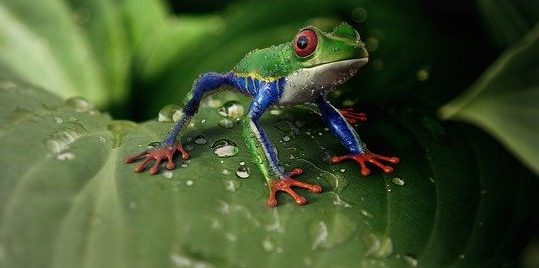(Ezekiel Loseke, Headline USA) Very serious academics have concluded that wild animals avoid minority neighborhoods because of systemic racism.
This pathbreaking study was conducted by biologists Colin Garroway of the University of Manitoba and Chloé Schmidt from the German Centre for Integrative Biodiversity Research, according to The Daily Mail.
The study bears the title “Systemic racism alters wildlife genetic diversity.” The study includes a section titled “Ecological and Evolutionary Effects of Systemic Racism.” It also includes the section, “Effects of Racial Segregation on Genetic Variation.”
The study discovered a difference between animals in minority neighborhoods and white neighborhoods.
“We detected consistent relationships between the genetic composition of wildlife and the racial composition of neighborhoods,” the study reported. “Species tended to have larger effective population sizes, higher genetic diversity, and were less genetically differentiated in neighborhoods with higher proportions of White residents.”
The study was published in Proceedings of the National Academy of Sciences, a peer reviewed journal.
The study claims that the lack of woodland creatures creates negative effects on the mental and physical health of the residents of those neighborhoods.
The cause of the crippling absence of animals, according to the study, is racism.
The study argues that redlining drove out all the animals.
Redlining is the practice of prohibiting certain minorities from purchasing homes in certain areas. It has been illegal in America since 1968.
These scientists, of course, were not content reporting on the facts, but also veered into the political realm.
The report suggested that reforms be made to city planning to increase the access of minority communities to woodland critters.
The study also suggested increasing ‘racial diversity’ in the field of ecology and evolution. More diversity is needed, they say, to prevent ‘blind spots’ in research, like the one this very important study addresses.

